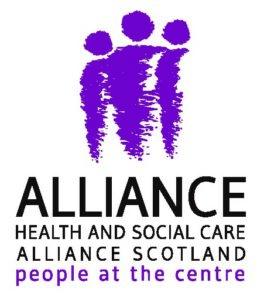
Protecting human rights in an evolving digital landscape
The global pandemic changed where we work, how we live and the ways in which we look after ourselves. It created an explosion in the number of digital tools available and accelerated the pace of digital technology’s use in health and social care.
During this time, appointments via the NHS video conferencing platform “Near Me” increased dramatically. More people relied on self management apps and took part in online support groups to manage their health.
Is technology an enabler or a barrier?
Technology can be an enabler of human rights, helping a person to live a more independent life and be better informed about their condition.
However, it can also exacerbate inequalities and lead to further mistrust over technology. What good is a video conferencing service, if you lack the skills and confidence to use it, or an app for your long term condition if your data is used inappropriately.
With technology evolving at such a rapid pace, protections must exist alongside this growth.
People must not be left behind.
To tackle this the ALLIANCE, in partnership with VOX Scotland and Scottish Care, developed five principles for a human rights-based approach to digital health and social care.
- People at the centre
People’s needs should be at the heart of the service.
People should have access to inclusive and flexible digital services that meet their needs, rights, preferences and choices, with support if appropriate.
- Digital where it is best suited
Digital may not always be the appropriate option and should not be the default for health and social care services.
People should be involved in deciding how, where and when digital is used in health and social care, and co-create rights based digital services to ensure they are appropriate and effective.
- Digital as a choice
Digital should not be forced upon people.
People should be able to make an informed choice between using digital or non-digital health and social care services – and to switch between them at any time – without compromising the quality of care they experience.
- Digital inclusion not just widening access
Access to a device can be meaningless without the necessary skills to use it.
People should have access to free training and support to develop the skills, confidence and digital literacy they require to make a meaningful choice whether to access digital health and social care services. This is equally as important for those who provide the services.
- Control over digital data
People should have access to data held about them by health and social care services and have control over this data and how it is used.
People are tired of having to retell their story. This can be exhausting and triggering. Our vision is a future where people can share their data more widely, in a secure way, and with different individuals involved in their health and social care.
What can you do?
Embed human rights approaches within the design, delivery and evaluation of your digital services.
Is your organisation already championing the human rights principles? Then tweet us at @DHCScot.
We believe this will lead to a more equitable, meaningful use of technology and realise benefits for citizens as well as policy makers and service providers.
Would you like to find out more? Read about the work, including examples of the principles, here.
Maisie Peebles is the Discover Digital Development Officer at The Health and Social Care Alliance Scotland (the ALLIANCE)

